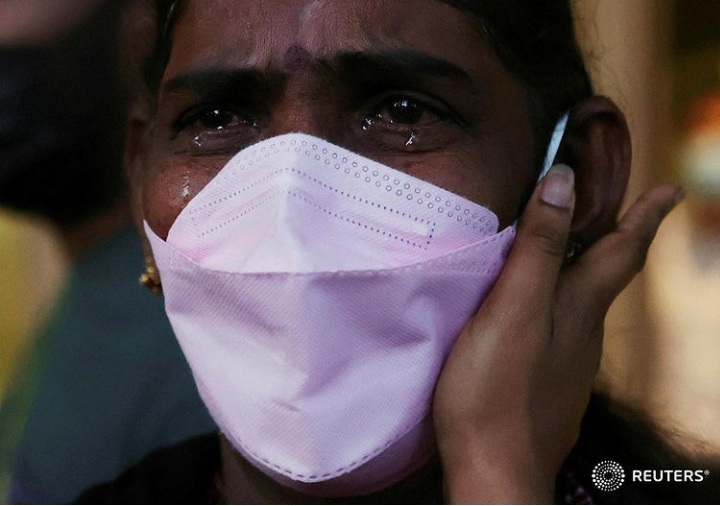Pat Stevens/
Virgin Atlantic founder, Sir Richard Branson, has condemned the government of Singapore for carrying out the death penalty passed on an intellectually disabled Malaysian, Nagaenthran Dharmalingam, for drug trafficking.
Nagen, as he was known by family and friends, was sentenced to death in 2009 for carrying 42 grams of heroin across the border at the age of 21.
He was hanged at Changi prison this morning.
Branson, in a statement he personally signed, said it was heart-breaking to learn that Singapore still went ahead to execute Nagen despite the international appeal for leniency, given his personal circumstance.
He described Nagen as “a victim of his personal circumstances” and of “drug cartels that prey on the vulnerable,” as well of “a justice system that so consistently seems to fail minorities, the marginalised, and the poor”.
He added, “I cannot unsee the photo of Nagen’s poor mother, Panchalai, in court yesterday, as she made a last, desperate plea to spare her son’s life. Imagine the anguish, the anxiety, the grief.”

Read full statement below:
We learned the heart-breaking news that Nagaenthran Dharmalingam was hanged at Changi prison this morning.
Singapore’s relentless machinery of death did what it always does. Stubbornly rejecting international human rights law and the views of experts, it left no room for decency, dignity, compassion, or mercy.
Justice wasn’t served.
Nagen, as he was known by family and friends, was a 33-year-old intellectually disabled Malaysian man sentenced to die in Singapore for carrying 42 grams of heroin across the border at the age of 21.
We had been campaigning to save his life. He was not a criminal. He was a victim – of his personal circumstances; of drug cartels that prey on the vulnerable; of a justice system that so consistently seems to fail minorities, the marginalised, and the poor. Humanity has failed him.
I cannot unsee the photo of Nagen’s poor mother, Panchalai, in court yesterday, as she made a last, desperate plea to spare her son’s life. Imagine the anguish, the anxiety, the grief.
In the hours and days to come, there will be anger, frustration and profound sadness. But, more than ever, I am convinced that it’s in our hands to end the death penalty in our lifetime. The global movement for abolition is growing. Also because of miscarriages of justice like this.
Singapore will not be the same after this. People are rightly beginning to doubt the need for the death penalty. More are speaking up. A national conversation is long overdue. If a system cannot protect the rights of those with disabilities, if it cannot offer empathy and reprieve, then something is fundamentally broken. Nagen’s case has raised so many questions about good governance, transparency, due process, fairness, and about Singapore’s commitment to international agreements. This will not go away. I’d rather know Singapore as modern, world-class hub of trade than as a place that wastes its resources and its reputation on hanging people.
We owe enormous gratitude to organisations like Reprieve, the Transformative Justice Collective, the Anti-Death Penalty Asia Network, the Responsible Business Initiative for Justice, but also Nagen’s lawyer M Ravi. Working across Asia and the world, they are the giants on whose shoulders we stand, and they deserve everyone’s continued support and collaboration.
Bryan Stevenson once wrote that “the true measure of our character is how we treat the poor, the disfavoured, the accused, the incarcerated, and the condemned”.
In this spirit, let’s do away with the death penalty once and for all – in Singapore and elsewhere. We owe it to Nagen.
0






